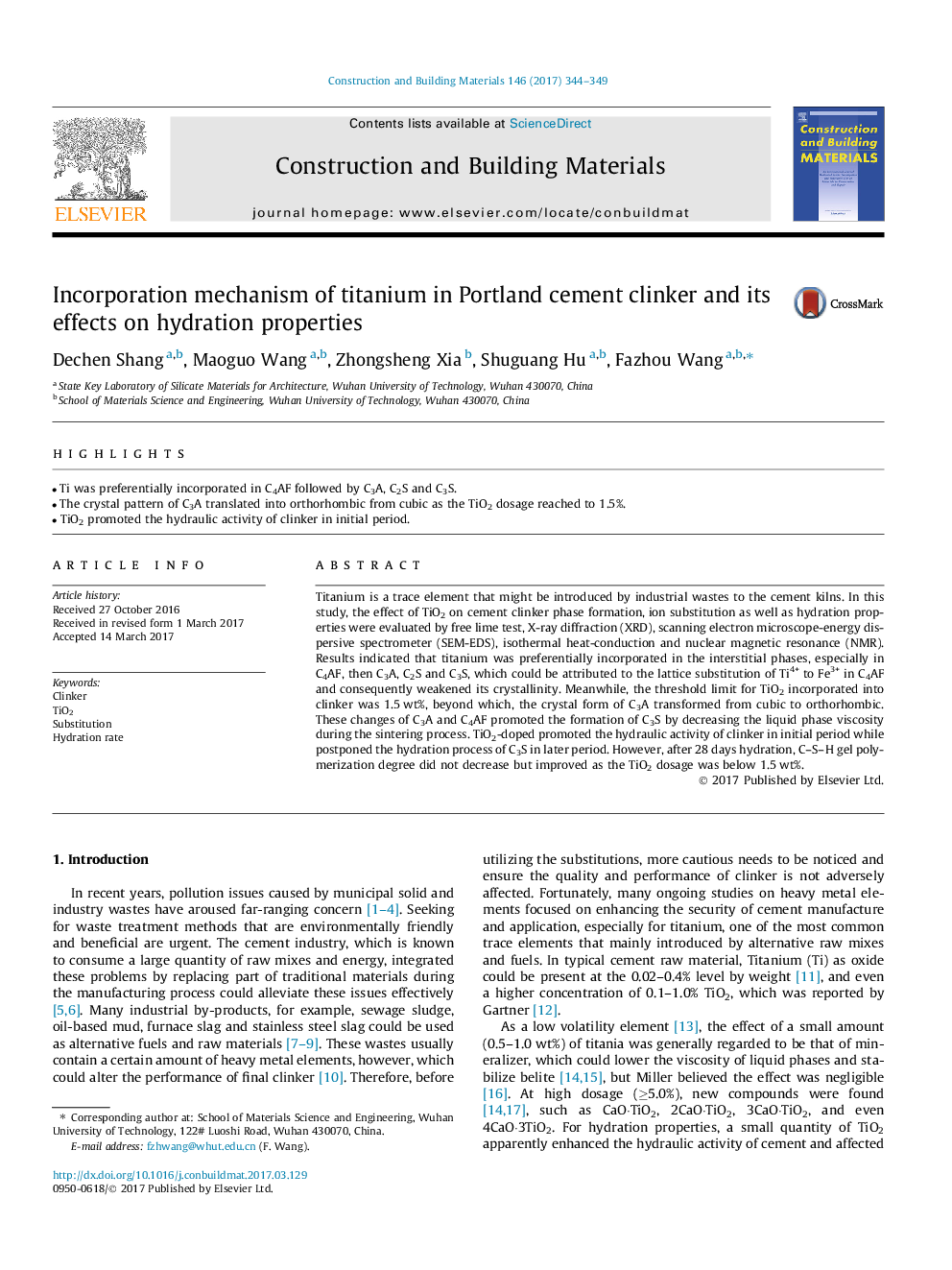| کد مقاله | کد نشریه | سال انتشار | مقاله انگلیسی | نسخه تمام متن |
|---|---|---|---|---|
| 4913309 | 1428760 | 2017 | 6 صفحه PDF | دانلود رایگان |
عنوان انگلیسی مقاله ISI
Incorporation mechanism of titanium in Portland cement clinker and its effects on hydration properties
ترجمه فارسی عنوان
سازگاری تیتانیوم در کلینکر سیمان پرتلند و اثرات آن بر خواص هیدراتاسیون
دانلود مقاله + سفارش ترجمه
دانلود مقاله ISI انگلیسی
رایگان برای ایرانیان
کلمات کلیدی
موضوعات مرتبط
مهندسی و علوم پایه
سایر رشته های مهندسی
مهندسی عمران و سازه
چکیده انگلیسی
Titanium is a trace element that might be introduced by industrial wastes to the cement kilns. In this study, the effect of TiO2 on cement clinker phase formation, ion substitution as well as hydration properties were evaluated by free lime test, X-ray diffraction (XRD), scanning electron microscope-energy dispersive spectrometer (SEM-EDS), isothermal heat-conduction and nuclear magnetic resonance (NMR). Results indicated that titanium was preferentially incorporated in the interstitial phases, especially in C4AF, then C3A, C2S and C3S, which could be attributed to the lattice substitution of Ti4+ to Fe3+ in C4AF and consequently weakened its crystallinity. Meanwhile, the threshold limit for TiO2 incorporated into clinker was 1.5Â wt%, beyond which, the crystal form of C3A transformed from cubic to orthorhombic. These changes of C3A and C4AF promoted the formation of C3S by decreasing the liquid phase viscosity during the sintering process. TiO2-doped promoted the hydraulic activity of clinker in initial period while postponed the hydration process of C3S in later period. However, after 28Â days hydration, C-S-H gel polymerization degree did not decrease but improved as the TiO2 dosage was below 1.5Â wt%.
ناشر
Database: Elsevier - ScienceDirect (ساینس دایرکت)
Journal: Construction and Building Materials - Volume 146, 15 August 2017, Pages 344-349
Journal: Construction and Building Materials - Volume 146, 15 August 2017, Pages 344-349
نویسندگان
Dechen Shang, Maoguo Wang, Zhongsheng Xia, Shuguang Hu, Fazhou Wang,
